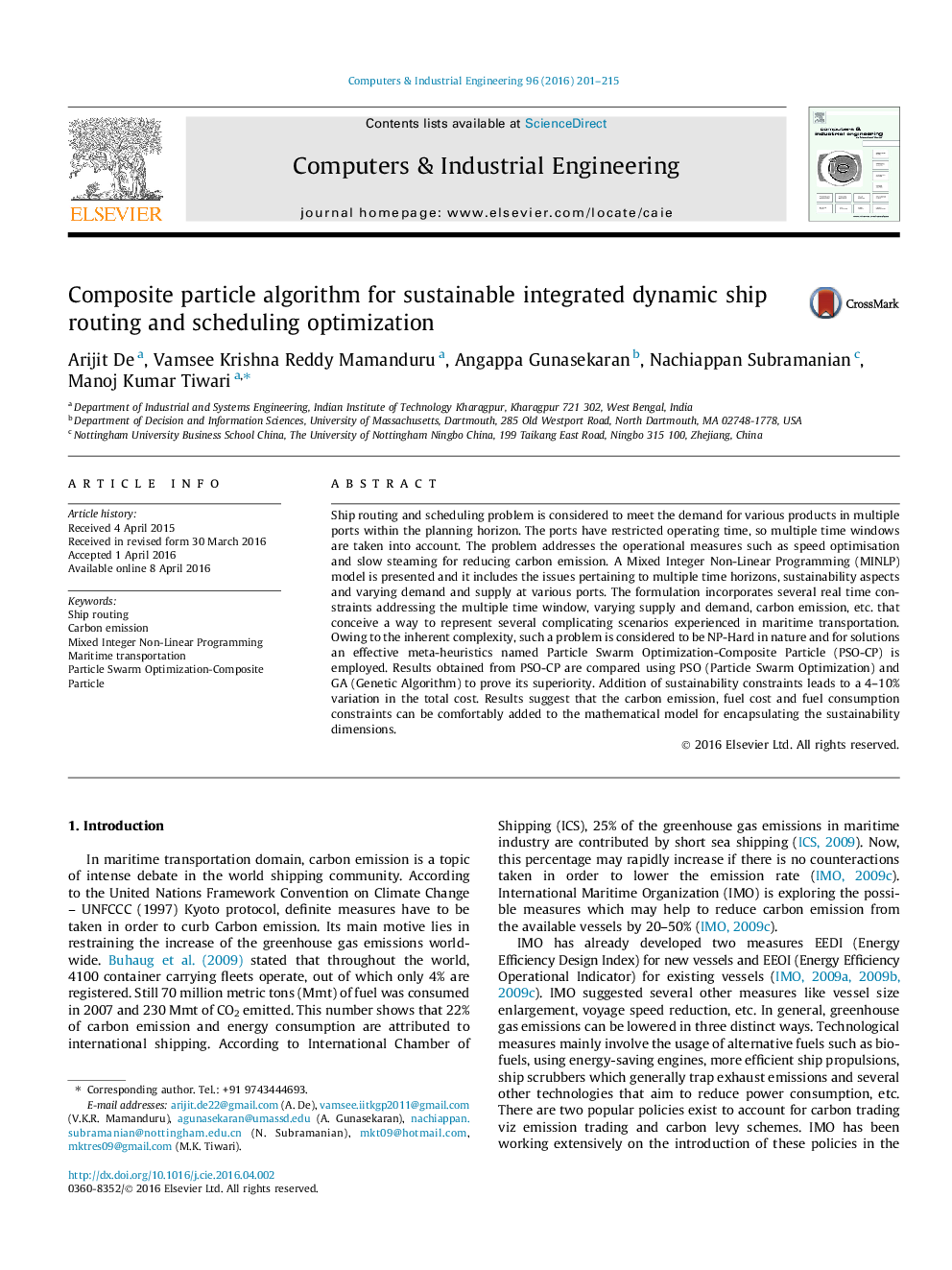| کد مقاله | کد نشریه | سال انتشار | مقاله انگلیسی | نسخه تمام متن |
|---|---|---|---|---|
| 1133178 | 1489070 | 2016 | 15 صفحه PDF | دانلود رایگان |
• The problem is formulated as a sustainable ship routing and scheduling problem.
• Carbon emission, fuel consumption and fuel cost constraints are introduced.
• Particle Swarm Optimization-Composite Particle algorithm is employed.
• The analysis of the results and comparison of employed algorithm are performed.
Ship routing and scheduling problem is considered to meet the demand for various products in multiple ports within the planning horizon. The ports have restricted operating time, so multiple time windows are taken into account. The problem addresses the operational measures such as speed optimisation and slow steaming for reducing carbon emission. A Mixed Integer Non-Linear Programming (MINLP) model is presented and it includes the issues pertaining to multiple time horizons, sustainability aspects and varying demand and supply at various ports. The formulation incorporates several real time constraints addressing the multiple time window, varying supply and demand, carbon emission, etc. that conceive a way to represent several complicating scenarios experienced in maritime transportation. Owing to the inherent complexity, such a problem is considered to be NP-Hard in nature and for solutions an effective meta-heuristics named Particle Swarm Optimization-Composite Particle (PSO-CP) is employed. Results obtained from PSO-CP are compared using PSO (Particle Swarm Optimization) and GA (Genetic Algorithm) to prove its superiority. Addition of sustainability constraints leads to a 4–10% variation in the total cost. Results suggest that the carbon emission, fuel cost and fuel consumption constraints can be comfortably added to the mathematical model for encapsulating the sustainability dimensions.
Journal: Computers & Industrial Engineering - Volume 96, June 2016, Pages 201–215
